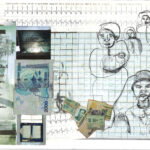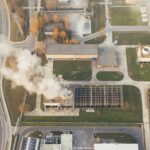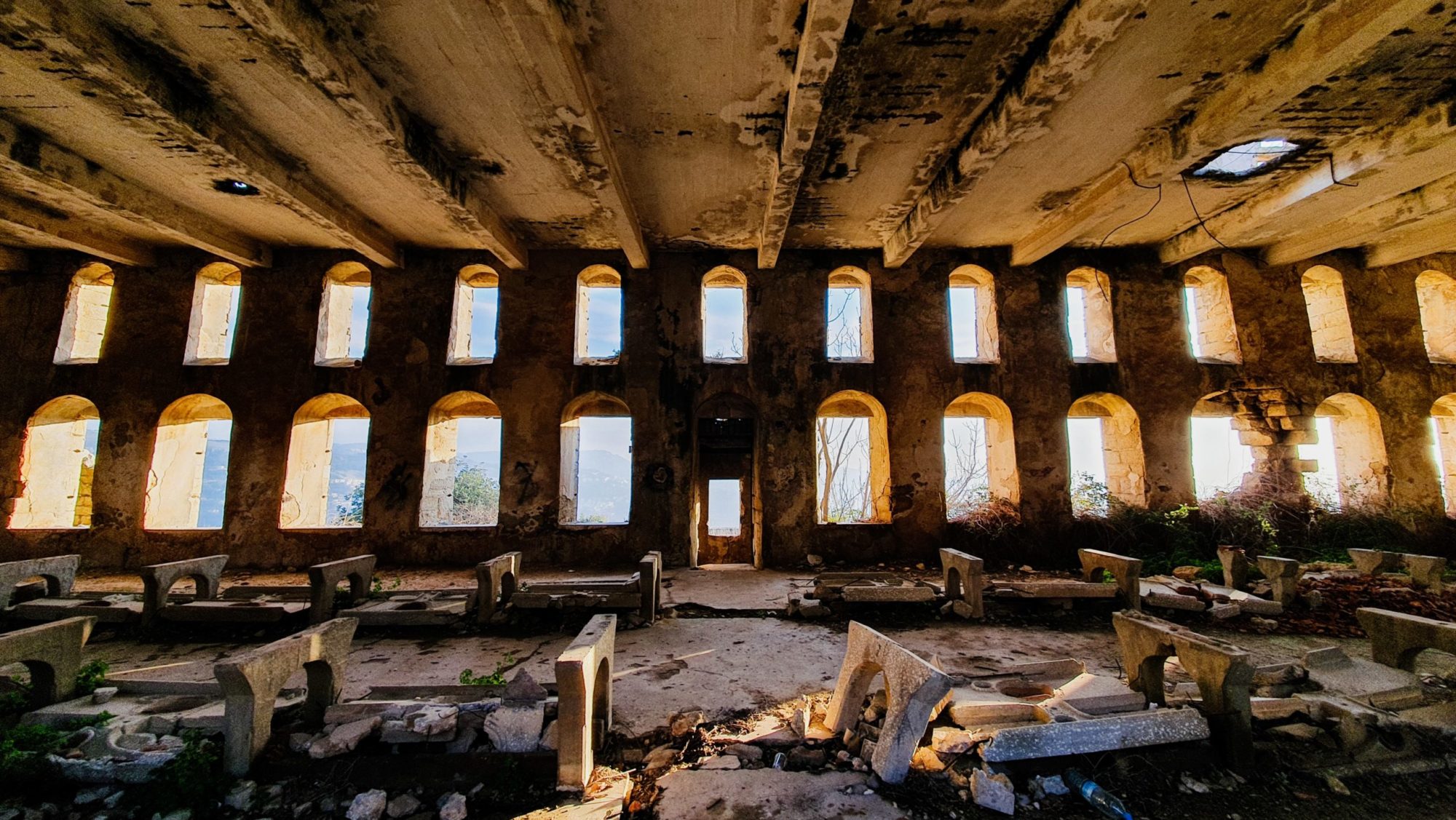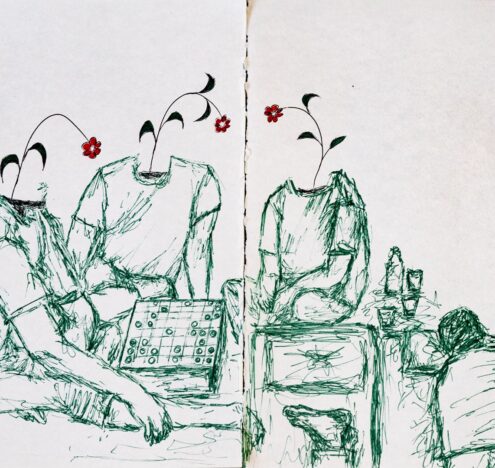On August 4, a massive explosion devastated Beirut’s port and the surrounding area. My corner of the Twitter-verse quickly filled with videos and speculation about the blast. Friends and colleagues expressed anguish and anger, especially as the likely cause, 2750 metric tons of ammonium nitrate stored without safety measures, became apparent.
However, for those without ties to the region, the awful boom of the Beirut explosion has already begun to fade into the background noise of generalized global tragedy; it will recede even faster into the steady hum of violence that so frequently emanates out of the Middle East. To many Americans, the Middle East seems a dysfunctional mess, wracked by religious extremism, authoritarian atrocities, serial corruption, and now the glaring evidence of criminal neglect.
Yet while Americans click past horror in the Middle East, our sense of remove is based on perceived powerlessness to change anything “over there” — a sense predicated on ignoring the United States’ own role in creating the instability and poor governance that plagues the region. From arming the ruling autocrats to outright invasions with the goal of regime change, US involvement in the region is motivated by the post-Cold War quest for military dominance. This has created a self-perpetuating dynamic of repression and violence.
As someone who lived for several years in the Middle East, first reporting and later conducting doctoral research, I knew that many of the people I met viewed America with cynicism. My friends in Cairo and in Sanaa saw right through America’s flattering self-image, that of promoting democracy and upholding human rights, because they experienced firsthand that US interference led to neither of those outcomes.
I was cynical too, primarily as a result of coming of age in the Bush II era. My first internship involved entering the names of detainees at Guantanamo Bay into spreadsheets at the Center for Constitutional Rights. Even the Center’s win in front of the US Supreme Court in the Hamdi vs. Rumsfeld case of 2004 led to no material changes; acknowledging the detainees’ right of habeas corpus meant nothing for those men doomed to suffer as the scapegoats for a nation’s collective grief. In the decades since 2001, much of the Middle East has suffered as a result of the US reaction to 9/11: the US response relied almost exclusively on the military, rather than investing in economic and political institutions to address the factors driving violent extremism.
Despite my cynicism, I believed that the Bush era was an aberration, and the US could still act as a force for good in the region. I moved to Egypt just after Obama was elected. On inauguration day in 2009, I wore a t-shirt with his face on it while walking through Cairo. People in cars leaned out of their windows to cheer. In June of that year, when Obama came to give his famous Cairo speech, polls of the Egyptian public revealed optimism that the US would “do the right thing” in world affairs. I was relieved at no longer feeling embarrassed when introducing myself as an American.
A Yemeni friend explained that the building was a school that the Americans had built. I asked why it was empty, and he joked that local people thought of it as a CIA training camp; they certainly were not going to send their kids there.
I should have been more attuned to the deep undercurrent of suspicion about the US, which a single American president could not overcome. While working as a freelance journalist in Yemen in 2010, I traveled to the island of Socotra. Driving across the island, I saw an empty shell of a building with the American and Yemeni flags painted on the outer wall. A Yemeni friend explained that the building was a school that the Americans had built. I asked why it was empty, and he joked that local people thought of it as a CIA training camp; they certainly were not going to send their kids there. I knew that the Socotri people tended to be ignored by the corrupt and ineffective Yemeni government, and that basic infrastructure like schools and hospitals were in short supply. I was surprised that the US was so mistrusted that a school built by American aid would just stand empty.
By early 2011 I was back in the US, watching what would be called the Arab Spring play out on Twitter. I felt so excited for my friends in Egypt and Yemen. As they gathered in Tahrir Square in Cairo as well as Tahrir Square in Sanaa, both named for “Liberation,” I wished I could be with them. I wrote excitedly about how the Middle East, a region so often referred to as “not ready for democracy,” clearly was. Sadly, the fervid dreams of those early months were ground down into the brutal repression that followed.
Yet I believed that the spark of revolution might reignite, and if it did, I hoped US policymakers would support those fighting for their rights. I did not dwell on the role that decades of US military aid played in bolstering the resilience of the military dictatorship reconsolidating control in Egypt. When Saudi Arabia began bombing Yemen in response to the takeover of Sanaa by the Houthis in 2015, I feared for my friends there, but did not evaluate Saudi Arabia’s actions as emboldened by decades of purchasing US military hardware.
While doing research in Jordan in 2015, the threat posed by ISIS felt ever-present, just across the northern border with Syria. The Jordanians I interviewed frequently blamed the US for intentionally creating and funding ISIS, a view others in the region shared. I agreed that the US had caused the state failure that allowed ISIS to flourish in Iraq and done little to prevent its rise in Syria, but I assured them that the US government opposed ISIS. I had known Steven Sotloff, one of the American prisoners ISIS beheaded, and was sickened to think that so many people believed his death had been staged. At the time, I did not focus enough on the implications of the conspiracy theory: that my interlocutors believed the US to be so determined to harm the people of the Middle East that the Americans had unleashed a bloodthirsty mob upon them.
The following year, doing research in Morocco, I interviewed an employee at the US embassy about partnerships between the American and Moroccan governments to prevent violent extremism. He explained that the US had funded various efforts, but had to do so secretly because a known affiliation with the US would immediately undermine a project’s credibility. I wondered how the US would ever be able to rehabilitate its reputation, if all efforts to reach out to local populations were suspect. I hoped that with time and better policy choices, the damage wrought by the War on Terror might fade.
An Egyptian friend finally made me understand that a militarily-oriented US posture towards the Middle East would always perpetuate the cycle of violence. He told me over Facebook that he hoped Clinton would lose the presidential election, because she would continue Obama’s policies. For my friend, Obama had been worse than Bush, as the region was convulsed by more widespread conflict at the end of 2016 than it had been in 2008. He said that if I cared about people in Egypt and the rest of the region, I could not support Clinton.
After the election, I was horrified at Trump’s win. My Egyptian friend surprised me again by telling me he was glad, because having Trump as president would force Americans to understand how they were seen in the rest of the world: driven by naked self interest. Under Obama, progressive Americans could feel good about our country; we could believe that “the arc of history is long, but it bends towards justice.” Under Trump, my friend argued, we could no longer delude ourselves with myths about America’s commitment to freedom. At the time, I thought he would eventually see that Trump’s policies led to greater violence. Instead I came to realize that he was right, as were those who distrusted US interference in the Middle East.
Almost four years later, another election is upon us. I no longer think that the outcome of a single presidential race can erase decades of bad policy choices. Americans will remain complicit in the instability plaguing the Middle East for as long as the primary objective of the US remains military dominance of the region. This is the argument I and my co-authors make in a recent report published by the Quincy Institute. I used to think that the US could be a force for good in the region, but now see that will only be possible once US troops have been withdrawn, along with support for ruling autocrats. Until then, the US will remain an occupying force, propping up corrupt and abusive governments, and cultivating increased resentment.
When I first spent time in the Middle East, it was still possible to work as a journalist in Cairo without fear of imprisonment, and study Arabic in Sanaa without fear of airstrikes. As conflict and repression have intensified throughout the region, my experiences are increasingly a relic of an earlier time. In recent years, Beirut became one of the cities where people like me, Americans who want to live and work in the Middle East, tended to settle, because it was still relatively safe. Yet if the US continues to pursue the same policies that have been so disastrous for the region, we can expect to see only more tragedy play out in the Middle East. The blood of the peoples of the region will be on America’s hands.
Annelle Sheline, PhD is a Research Fellow at the Quincy Institute for Responsible Statecraft.





















